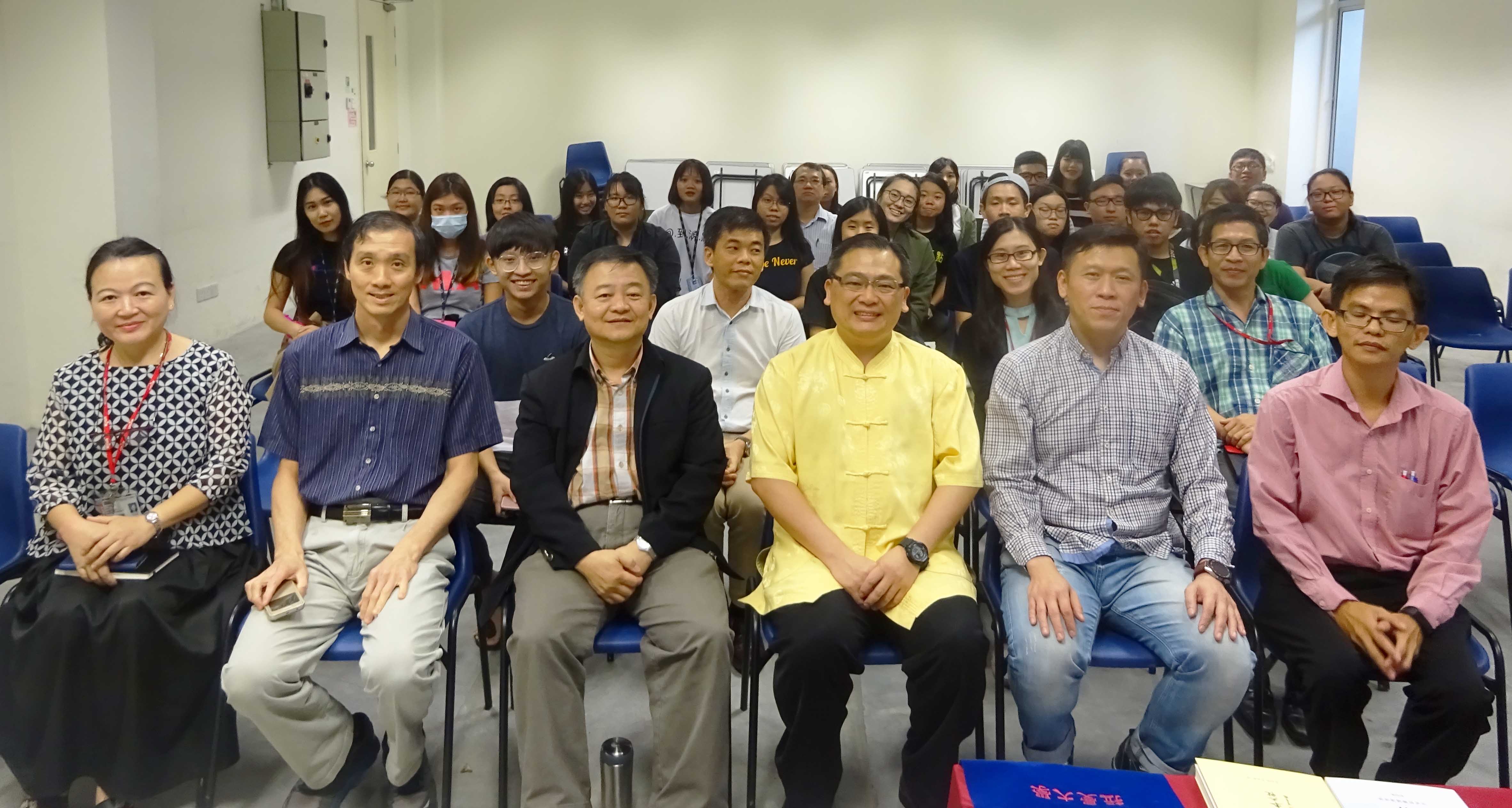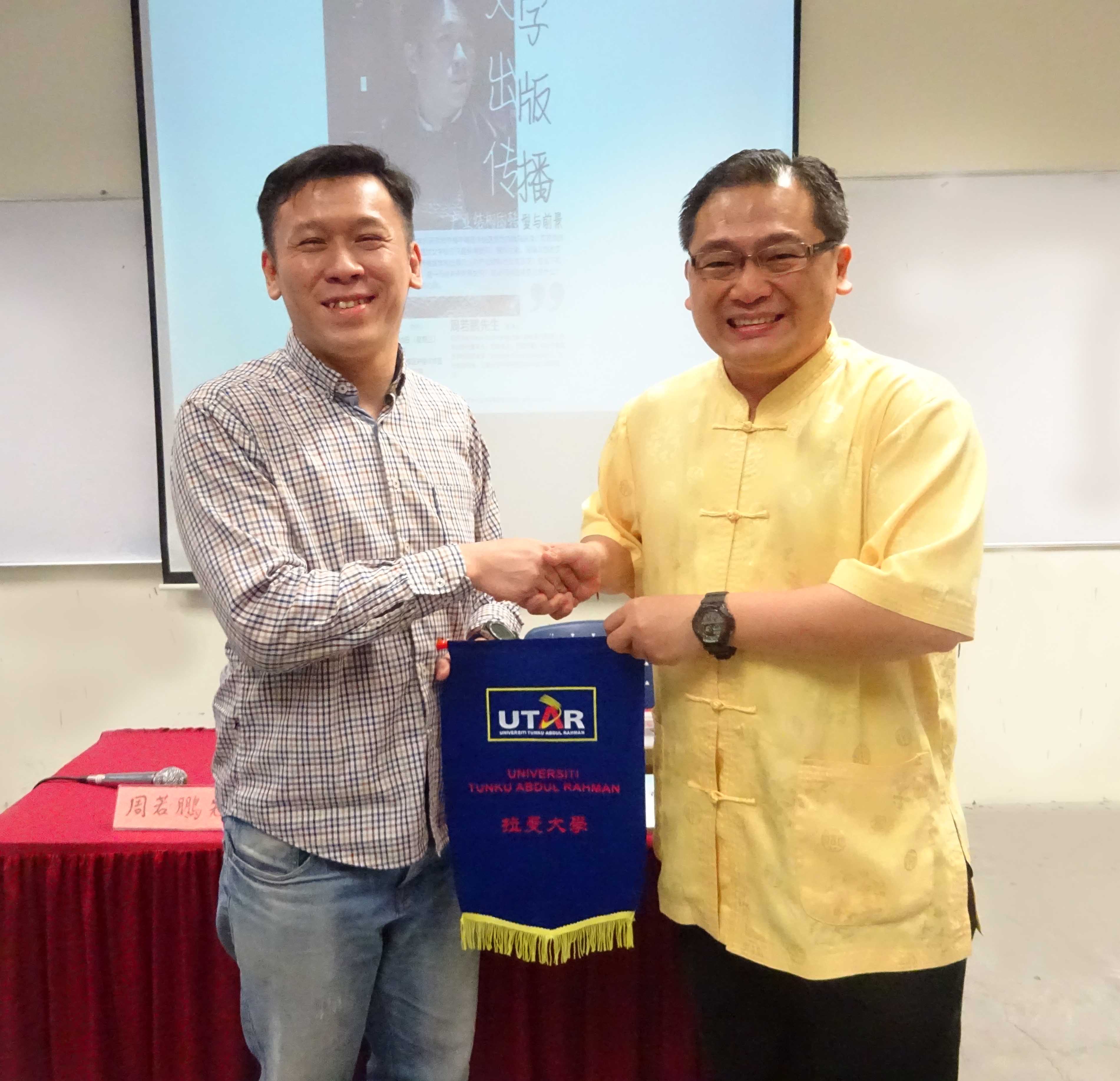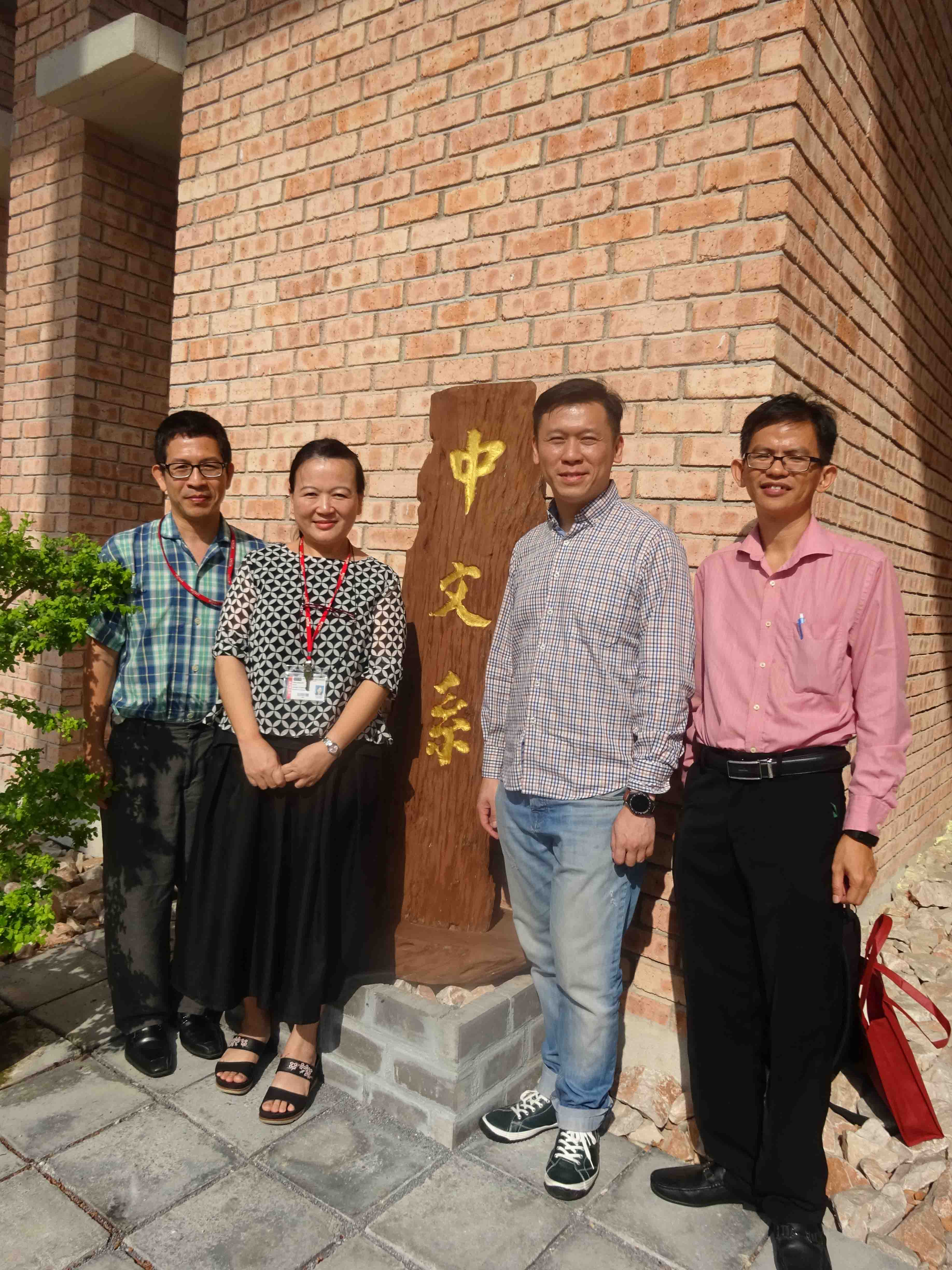


Chiew (front row, second from right) with the audience
Mentor Publishing Sdn Bhd Chairman and Publisher Chiew Ruoh Peng, who is also the internship advisor (IA) for undergraduate programmes of UTAR Institute of Chinese Studies (ICS), was invited by the ICS to present a talk titled “Words, Publication and Communication: Transformation and Prospects of Industrial Structure (文字、出版和传播:产业结构的转型与前景)” at UTAR Kampar Campus on 10 April 2019.
Chiew is a well-known Malaysian Chinese Literature Poet and he is the Executive Director of The Name Technology Sdn Bhd. He is also a Computer Science graduate from Western Illinois University, US.

Dr Chong (right) presenting a token of appreciation to Chiew
The talk aimed to provide a platform for the students to have a deeper understanding of the Chinese publishing industry in Malaysia. Present at the talk were ICS Dean Assoc Prof Dr Chong Siou Wei, Deputy Dean for Academic Development and Undergraduate Programmes Assoc Prof Dr Wong Wun Bin, Deputy Dean for Student Development and Industrial Training Dr Ling Liong Ngo, Kampar Campus’ Head of Chinese Studies Department Dr Toh Teong Chuan, Head of Postgraduate Programmes Dr Wong Lih Lih and lecturers.
He began the talk by first sharing the use of words. He said, “We can never underestimate the writing job because languages and words are magical. It will be a great help to you if you can build and master words and language skills. The success of copywriting depends on the manipulation of words.”
He said, “The publishing industry is often mistaken for the printing or the sunset industry. For me, the definition of ‘publishing’ means to convert useful and sellable content into commodities. It does not need to be limited to paper books. The publishing operation process can be divided into several steps, including determination of contents, marketing plans, editing, proofreading and printing. The marketing plan is very important and it needs to be started right after the content has been decided. Every book has its own target audience. Therefore, when you start the marketing plan, you need to think and find out the ways to promote the book to the target audience.”
He also shared the difference between the Chinese publishing industry in Malaysia and other countries, “In Taiwan, publishers will sell their books to the bookstores through dealers. However, the bookselling process here involves direct contact between the publisher and the bookstore.”
Speaking about social media, he added, “The impacts of social media on the publishing industry included a reduction in the number of readers for paper books and changes in the reading habits of all ages. Also, most people these days have difficulty to read a whole book. But do not worry, books will not perish. As long as people have the desire to learn, there will be a demand for knowledge as well as books.”
Regarding the transformation and prospects of industrial structure, he said, “If we make good use of the internet, the prospect of publishing will be brighter. The music industry still survives after the transition because of the value of its content. The same goes to book publishing. As long as it is not limited to paper books, trying to cross out and involve cross-domain cooperation will make a difference in the industry in the future.”
According to Chiew, e-book plays an important role in the transformation of the publishing industry. “The e-book market in Malaysia is not matured compared to the e-book market in China and Taiwan. One of the main reasons is our readers are not used to reading e-books. If the e-book market blooms in the future, the logistics and printing procedures for paper books will be eliminated, costs will be reduced and the profits will increase. There will also be an increase in the author’s income,” he said and added, “The paper books still have its specific advantages such as content presentation and design, as well as commemorative value.”
In addition, Chiew also shared information regarding book fair culture, copyright awareness, writing skills of the publishing industry practitioner and the talents needed for the publishing industry. He also explained the development trend of the Chinese publishing industry.

Chiew (second from right) accompanied by ICS academics
© 2019 UNIVERSITI TUNKU ABDUL RAHMAN DU012(A).
Wholly owned by UTAR Education Foundation Co. No. 578227-M LEGAL STATEMENT TERM OF USAGE PRIVACY NOTICE